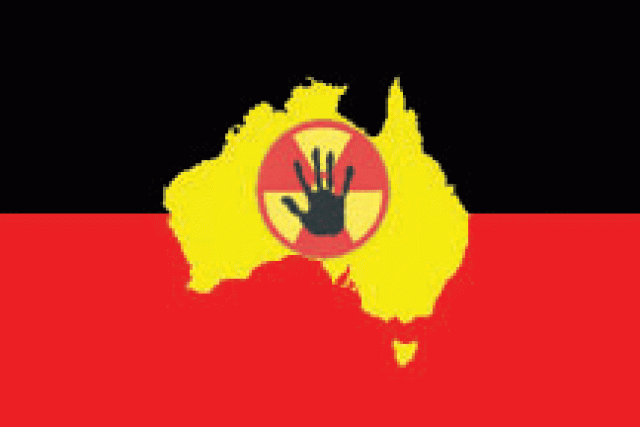
The NSW government was evasive for several days on whether it would allow uranium exploration and mining, banned since 1986.
This followed the call by federal resources minister Martin Ferguson in May for NSW and Victoria to rethink their uranium mining bans.
Premier Barry O’Farrell and resources minister Chris Hartcher finally said on August 5 they would not overturn the uranium mining ban.
In mid-June, Hartcher met the chief executive of the Australian Uranium Association Michael Angwin, who is lobbying to overturn the ban, the Sydney Morning Herald said.
In an August 3 opinion piece on ABC Online, Angwin slammed the eastern states’ uranium bans as “authoritarian”.
He said: “The Northern Territory and South Australia have encouraged the uranium industry for a long time. So it is not surprising that uranium development there proceeds without much fuss, despite the occasional hiccup.”
The “occasion hiccup” includes contaminating underground aquifers with radioactive tailings and the spread of radioactive dust.
Indigenous communities in the Northern Territory and South Australia suffer some of the worst effects of this radioactive contamination.
And far from enjoying the spectacular economic benefits that Angwin claimed were being denied residents of the non-uranium mining eastern states, these communities are among the poorest in Australia.
The Northern Territory intervention, perversely justified as a response to this terrible poverty, includes many measures that further take away Indigenous communities’ rights to control their ancestral lands.
This is to the direct benefit of billionaire mine-owners, including the uranium mine-owners Angwin represents. These measures include attempts to shut down smaller Indigenous communities and herd Aboriginal people into “hub towns”.
Radioactive waste, which cannot be stored safely, is inseparable from the uranium industry.
Countries with nuclear power also have growing nuclear waste stockpiles. Unsurprisingly, they are pressuring Australia, as a major uranium supplier, to host a nuclear waste dump.

The Australian government wants to force Aboriginal communities to host such a dump at Muckaty Station. The affected Aboriginal communities are resisting, supported by environmentalists.
In 2004, plans for a similar dump at Kupa Piti (Coober Pedy) in South Australia were abandoned in the face of a long campaign led by senior traditional women.
They called their campaign against the uranium industry Irati Wanti, which means “leave the poison alone”. This is also an appropriate response to the push to expand uranium mining.
Over the past week, new revelations have emerged that the extent of radioactive contamination from Japan’s nuclear catastrophe at Fukushima has been vastly under-reported.
Radioactive water, rice and cattle have been found far from the crippled reactors.
Fukushima has caused people to rethink nuclear power even in the countries that use it heavily.
In Europe, Germany’s conservative government has committed to phasing out nuclear energy, reversing its previous policy.
In Japan, a campaign to abolish nuclear power is being led by the mayors of atom-bombed cities Hiroshima and Nagasaki.
Nuclear power also fuels nuclear weapons proliferation. Today, there is no guarantee that products from Australian uranium won’t end up in weapons.
Angwin claims “nuclear power is one of the world's cleanest sources of electricity and comparable to renewables”. Nothing could be further from the truth.
Uranium mining should not only stay banned in NSW and Victoria, it should cease in the states where it currently takes place. Irati Wanti.
Comments
Anonymous replied on Permalink
Anonymous replied on Permalink
Anonymous replied on Permalink